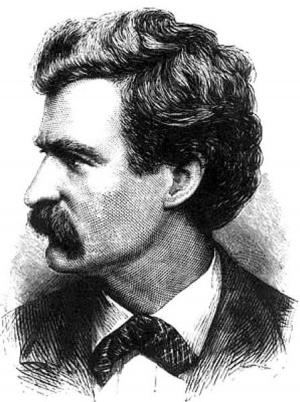The Mystery of Murray Davenport: A Story of New York at the Present Day
Nonfiction, Religion & Spirituality, New Age, History, Fiction & Literature| Author: | Robert Neilson Stephens | ISBN: | 9781465616739 |
| Publisher: | Library of Alexandria | Publication: | March 8, 2015 |
| Imprint: | Language: | English |
| Author: | Robert Neilson Stephens |
| ISBN: | 9781465616739 |
| Publisher: | Library of Alexandria |
| Publication: | March 8, 2015 |
| Imprint: | |
| Language: | English |
The night set in with heavy and unceasing rain, and, though the month was August, winter itself could not have made the streets less inviting than they looked to Thomas Larcher. Having dined at the caterer's in the basement, and got the damp of the afternoon removed from his clothes and dried out of his skin, he stood at his window and gazed down at the reflections of the lights on the watery asphalt. The few people he saw were hastening laboriously under umbrellas which guided torrents down their backs and left their legs and feet open to the pour. Clean and dry in his dressing-gown and slippers, Mr. Larcher turned toward his easy chair and oaken bookcase, and thanked his stars that no engagement called him forth. On such a night there was indeed no place like home, limited though home was to a second-story "bed sitting-room" in a house of "furnished rooms to let" on a crosstown street traversing the part of New York dominated by the Waldorf-Astoria Hotel. Mr. Larcher, who was a blue-eyed young man of medium size and medium appearance every way, with a smooth shaven, clear-skinned face whereon sat good nature overlaid with self-esteem, spread himself in his chair, and made ready for content. Just then there was a knock at his door, and a negro boy servant shambled in with a telegram. "Who the deuce—?" began Mr. Larcher, with irritation; but when he opened the message he appeared to have his breath taken away by joyous surprise. "Can I call?" he said, aloud. "Well, rather!" He let his book drop forgotten, and bestirred himself in swift preparation to go out. The telegram read merely: "In town over night. Can you call Savoy at once? EDNA." The state of Mr. Larcher's feelings toward the person named Edna has already been deduced by the reader. It was a state which made the young man plunge into the weather with gladness, dash to Sixth Avenue with no sense of the rain's discomfort, mentally check off the streets with impatience as he sat in a north-bound car, and finally cover with flying feet the long block to the Savoy Hotel. Wet but radiant, he was, after due announcement, shown into the drawing-room of a suite, where he was kept waiting, alone with his thumping heart, for ten minutes. At the end of that time a young lady came in with a swish from the next room. She was a small creature, excellently shaped, and gowned—though for indoors—like a girl in a fashion plate. Her head was thrown back in a poise that showed to the best effect her clear-cut features; and she marched forward in a dauntless manner. She had dark brown hair arranged in loose waves, and, though her eyes were blue, her flawless skin was of a brunette tone. A hint has been given as to Mr. Larcher's conceit—which, by the way, had suffered a marvellous change to humility in the presence of his admired—but it was a small and superficial thing compared with the self-satisfaction of Miss Edna, and yet hers sat upon her with a serenity which, taking her sex also into consideration, made it much less noticeable.
The night set in with heavy and unceasing rain, and, though the month was August, winter itself could not have made the streets less inviting than they looked to Thomas Larcher. Having dined at the caterer's in the basement, and got the damp of the afternoon removed from his clothes and dried out of his skin, he stood at his window and gazed down at the reflections of the lights on the watery asphalt. The few people he saw were hastening laboriously under umbrellas which guided torrents down their backs and left their legs and feet open to the pour. Clean and dry in his dressing-gown and slippers, Mr. Larcher turned toward his easy chair and oaken bookcase, and thanked his stars that no engagement called him forth. On such a night there was indeed no place like home, limited though home was to a second-story "bed sitting-room" in a house of "furnished rooms to let" on a crosstown street traversing the part of New York dominated by the Waldorf-Astoria Hotel. Mr. Larcher, who was a blue-eyed young man of medium size and medium appearance every way, with a smooth shaven, clear-skinned face whereon sat good nature overlaid with self-esteem, spread himself in his chair, and made ready for content. Just then there was a knock at his door, and a negro boy servant shambled in with a telegram. "Who the deuce—?" began Mr. Larcher, with irritation; but when he opened the message he appeared to have his breath taken away by joyous surprise. "Can I call?" he said, aloud. "Well, rather!" He let his book drop forgotten, and bestirred himself in swift preparation to go out. The telegram read merely: "In town over night. Can you call Savoy at once? EDNA." The state of Mr. Larcher's feelings toward the person named Edna has already been deduced by the reader. It was a state which made the young man plunge into the weather with gladness, dash to Sixth Avenue with no sense of the rain's discomfort, mentally check off the streets with impatience as he sat in a north-bound car, and finally cover with flying feet the long block to the Savoy Hotel. Wet but radiant, he was, after due announcement, shown into the drawing-room of a suite, where he was kept waiting, alone with his thumping heart, for ten minutes. At the end of that time a young lady came in with a swish from the next room. She was a small creature, excellently shaped, and gowned—though for indoors—like a girl in a fashion plate. Her head was thrown back in a poise that showed to the best effect her clear-cut features; and she marched forward in a dauntless manner. She had dark brown hair arranged in loose waves, and, though her eyes were blue, her flawless skin was of a brunette tone. A hint has been given as to Mr. Larcher's conceit—which, by the way, had suffered a marvellous change to humility in the presence of his admired—but it was a small and superficial thing compared with the self-satisfaction of Miss Edna, and yet hers sat upon her with a serenity which, taking her sex also into consideration, made it much less noticeable.















